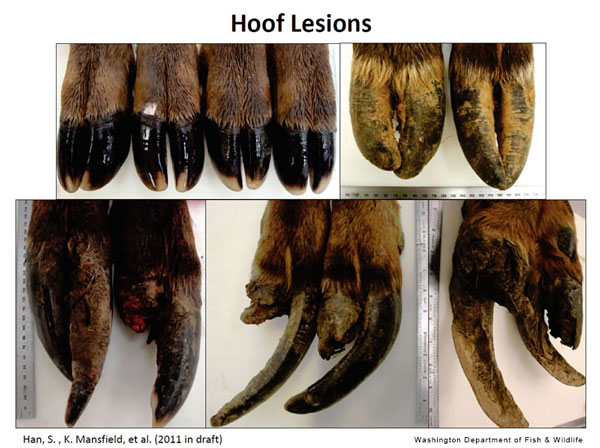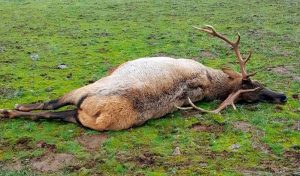PULLMAN, Wash. (RELEASE) – WSU College of Veterinary Medicine Dean Bryan Slinker has convened the first Elk Hoof Disease committee meeting as a follow-up to funded legislation that directs WSU’s research engagement with respect to EHD.
“Washington taxpayers and the Legislature made it clear, EHD is a priority disease issue,” said Slinker. “Together they fully funded a research program for WSU and from here on it’s time to get to work and develop some answers.”
WSU’s veterinary college will launch an effort that includes, but is not limited to, continued collaboration with the Washington Department of Fish and Wildlife (WDFW), the Washington Department of Agriculture, Native American tribes and other national and international agencies that can lend expertise and field activities.
The legislation (SB 5474) was sponsored by Sen. Kirk Pearson, R-Monroe, who chairs the Senate Natural Resources and Parks Committee. The recently passed state budget includes $1.52 million for the effort at WSU.
The dean’s initial committee met on Friday, July 7. The legislation takes effect July 21. The group was composed of research faculty, unit heads from the Washington Animal Disease Diagnostic Laboratory and the Department of Veterinary Microbiology and Pathology, and fiscal and communication staff.
The purpose of the meeting was to immediately begin mapping out the details of how WSU’s College of Veterinary Medicine will add EHD research into its nationally and internationally recognized portfolio of wildlife disease research programs, and how the new EHD program will coordinate with WDFW.
“A job description for a new research scientist to head the program is being written, laboratory space in Pullman is being identified, and I have tasked committee members with seeking specific information to get this project underway,” said Slinker. “I anticipate this will require an ongoing communication effort that is as transparent as possible to keep public trust. We work for the public and we want the public to follow this difficult disease research issue with us.”
For more information on EHD, see the Washington Department of Fish and Wildlife website.




